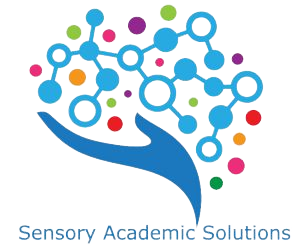Occupational THerapy
Sensory Academic Solutions offers occupational therapy services that promote improved skills in sensory integration and processing, self-regulation, bilateral integration, motor planning, balance, visual motor and visual perceptual skills, reflex integration, and body awareness. In addition, they have worked with a variety of behavior programs and incorporate behavioral strategies into their sessions. This approach forms the foundation necessary for fine motor skills, handwriting, self-awareness, and monitoring of behavior, attention, and focus, and coordination.
The Occupational Therapists at Sensory Academic Solutions use their unique expertise to help children prepare for and perform important learning and developmental activities. Occupational therapists support the achievement of developmental and learning outcomes for children with and without disabilities, by facilitating social skills development, motor development, emergent literacy, and the development of adaptive and self-care skills.
Our occupational therapists also address feeding. Whether it is a newborn baby who is struggling to latch or to breastfeed or an older child who has stopped eating, (limited/picky eaters) our occupational therapists work with you to overcome these difficulties. How do they do it? By identifying the reason why feeding/swallowing are difficult and working with you and your child to improve that process.
Who may benefit?
Occupational therapy can be particularly helpful for children born with physical or developmental difficulties. Occupational therapists evaluate a child’s fine motor skills, cognitive skills, visual perceptual skills, visual motor skills, handwriting skills, self-help skills, play skills, motor coordination and sensory processing abilities. Children who have needs in any of these areas would benefit from a formal evaluation by an occupational therapist to determine strengths and deficits
- ADHD
- Cerebral Palsy
- Chromosomal Anomalies
- Coordination Difficulties
- Developmental Delay
- Down Syndrome
- Feeding Difficulties
- Hypotonia
- Learning Disabilities
- Motor Planning Difficulties
- Oral Motor Dysfunction
- Pervasive Developmental Disorders (PDD)
- Post-traumatic brain injury symptoms
- Sensory Integration Dysfunction/Sensory Processing Disorders

